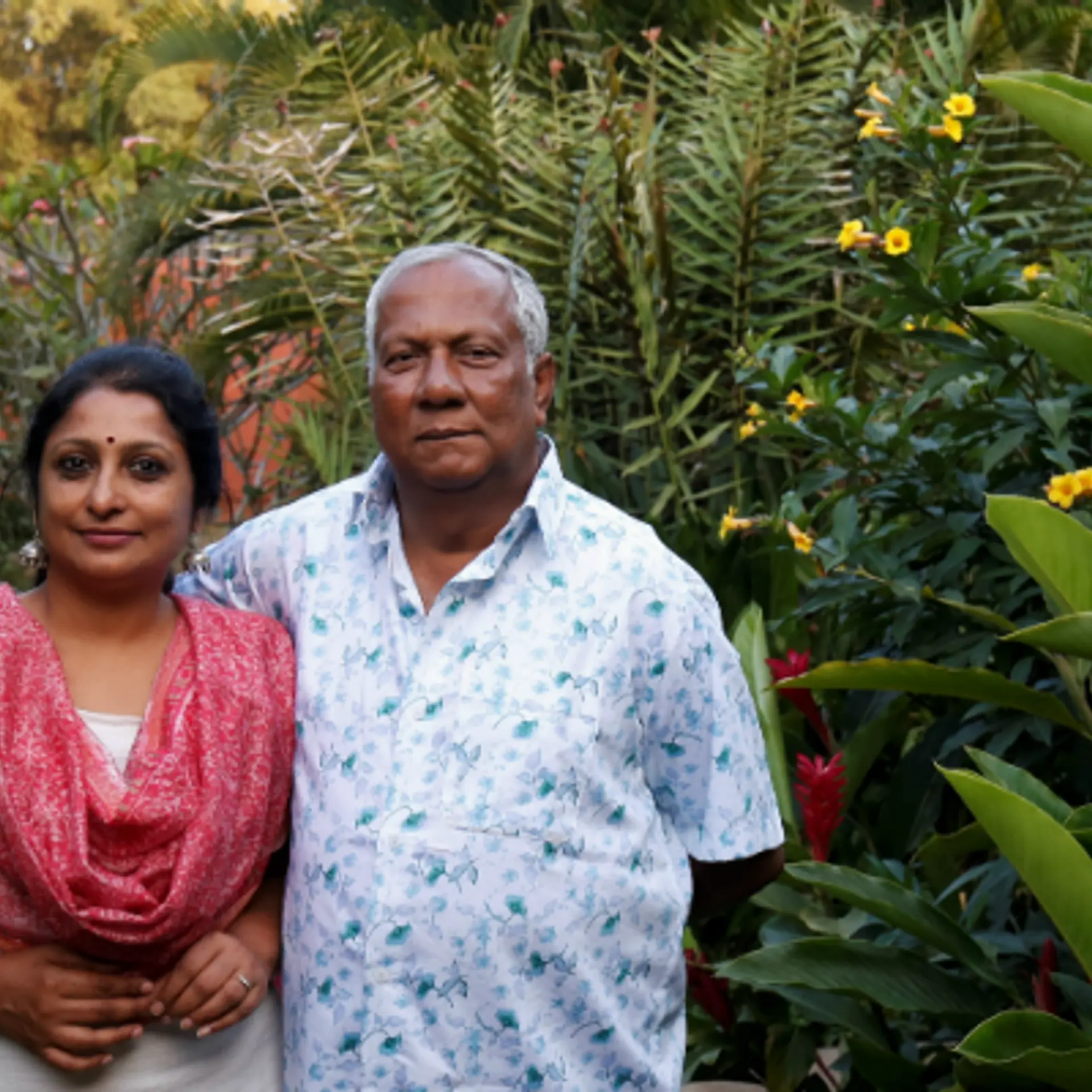From launching men’s intimate hygiene products to building a Rs 15Cr revenue business in 3 years: top SMB Stories of the week
This week, SMBStory covered stories of entrepreneurs who created an untargeted category in the industry and have built a successful business by following their passion.
Seeking inspiration, SMBStory tells the stories of entrepreneurs who have made an impact and are fulfilling the mission of ‘Aatmanirbhar Bharat’ even before Prime Minister Narendra Modi’s clarion call to go vocal for local.
This week, SMBStory came across a couple of friends who launched a men’s intimate hygiene brand – a category that had been an underserved sector in India. We also spoke to a husband-wife duo who built an online women’s apparel business and garnered success.
Here are their inspiring stories.
Skin Elements

Raghav Sood and Sarthak Taneja, Cofounders, Skin Elements
After not finding a single product in the men’s personal hygiene category, childhood friends Sarthak Taneja and Raghav Sood started in 2017 and came out with an innovative product – foaming intimate wash for men.
In an interaction with SMBStory, the duo speaks about the pertinent problem in the men’s personal hygiene space that had been ignored for a long time, and how they have made their place in the market.
“When we both decided to step into the business, D2C was booming and we decided to enter into the beauty and hygiene space. However, brands like , , and mCaffeine were already making a name in the beauty space. We realised there are fewer options in the personal hygiene industry and almost no choice for men’s hygiene products,” Sarthak says.
“Though there was a personal hygiene brand – , but that catered to women’s hygiene. In fact, we didn’t find any brand solving the problem of men’s personal hygiene,” Raghav adds.
Sarthak and Raghav invested Rs 10 lakh out of their savings and started Skin Elements out of Parwanoo, Himachal Pradesh. Today, the brand has 19 products in its offering and has garnered over one lakh customers in India, the US, Malaysia, and the UK. In FY21, the company clocked a turnover of Rs 7.5 crore.
Berrylush

Berrylush cofounders Anusha C and Alok Paul
IIM Raipur graduate Anusha Chandrashekar was always passionate about the fashion industry and dreamt of running her own women’s western wear brand. Her batchmate, Alok Paul, was interested in building ecommerce businesses.
Not only did they marry each other but also married their interests. They launched a direct-to-consumer (D2C) online women’s western wear brand in Noida in 2018.
Starting with four machines and a small manufacturing setup, the couple began manufacturing and selling apparel, including dresses, tops, jumpsuits, and skirts on ecommerce platforms such as Myntra, Ajio, , Amazon, and their own website.
In two years, Berrylush has reached annual revenue of Rs 15 crore, the brand claims, adding that it has sold over three lakh units of products in the 18 months preceding January 2021.
Other top stories of the week
Obage

Ankur and Ankit Oberoi, Co-founders, Obage
After graduating from Manipal Institute of Technology, Karnataka, Ankur started working with TCS and is a tech enthusiast by heart. Meanwhile, Ankit became a LIC agent after pursuing a Bachelor of Commerce from Delhi University. In 2011, they quit their jobs and started trading electronic parts.
The brothers first got into the OEM (Original Equipment Manufacturer) business in 2016, and later, they launched their own home speakers brand, , in 2018.
Today, Obage offers home audio speakers in 11 categories. Moreover, the brand, whose products are priced between Rs 3,000 – Rs 8,000, has especially gained traction in Tier-II, III, and IV cities. Today, 75 percent of the company’s customers come from cities like Nagpur, Nashik, Coimbatore, and other regions of West Bengal and East India.
Moneyboxx

Mayur Modi and Deepak Aggarwal, Cofounders, Moneyboxx Finance
Despite an increasing number of financing options available to MSMEs in recent years, the addressable credit gap in the MSME sector is estimated to be Rs 25.8 trillion ($397 billion). Deepak Aggarwal, Co-founder, Co-CEO and CFO of Finance, tells SMBStory,
“To credit the sector, banks and NBFCs are restricted by unique challenges in underwriting – lack of credit history, formal business documentation, and collateral. Fintech institutions are unable to serve this segment due to the lack of data, and addressing this segment requires an on-ground presence for effective underwriting and collection efficiency. Here, Moneyboxx plays the role of ‘The Missing Middle’.”
This idea to address the credit needs of underserved micro and small enterprises (MSEs) overlooked by banks and NBFCs led him to start Moneyboxx in Mumbai, a small-ticket unsecured loans company, along with Mayur Modi, who is the Co-CEO and COO.
Jaipur Rugs

NK Chaudhary and Yogesh Chaudhary
In the early 70s, Nand Kishore Chaudhary’s father ran a shoe shop in Churu, a small district in Rajasthan.
When Nand Kishore joined the shop after completing his graduation in 1975, the business had been incurring losses. So, he decided to shut the shop. He also got an opportunity to work in a bank but he refused and instead, kept scouting for bigger and better opportunities. He had a vision of running his own business someday.
Around the same time, a friend suggested he try his hand in the carpet industry, which was an upcoming sector in India in the late 70s and early 80s. Nand Kishore instantly took to the idea, and borrowed Rs 5,000 from his father to launch in 1978.
Jaipur Rugs has come a long way since then. Today, it employs more than 40,000 weavers and artisans from 600 villages across the country. An artisan working with Jaipur Rugs earns somewhere between Rs 8,000-Rs 12,000 per month. They are paid according to per square foot of the carpet completed.
From two looms in the initial years, the company now owns 7,000 looms, According to its financials, the company reported revenue over Rs 142 crore in FY20.
Edited by Kanishk Singh









